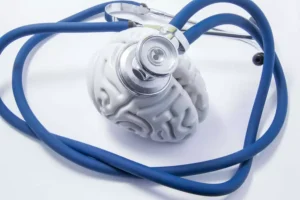
Drinking too much alcohol can raise blood pressure to unhealthy levels. Having more than three drinks in one sitting temporarily raises blood pressure. Repeated binge drinking can lead to long-term increases in blood pressure. For men, this can look like lowered libido and erectile dysfunction, as well as decreased muscle mass. For women, it can increase the risk of breast cancer, impair bone health, and lead to mood changes.
Farre 2014 published data only
These all contribute to ED independently, so addressing the root cause of your stress is paramount in alleviating ED in many people. There is a very clear link between regularly drinking too much alcohol and having high blood pressure. Over time, high blood pressure (hypertension) puts strain on the heart muscle and can lead to cardiovascular disease (CVD), which increases your risk of heart attack and stroke. Investigators have used a variety of noninvasive tests to evaluate the acute effects of alcohol consumption on myocardial function and hemodynamics in healthy humans. As with isolated animal heart experiments, some investigators have found that acute alcohol exposure (blood alcohol levels 40 to 110 mg%) depresses myocardial systolic function in humans (Delgado et al. 1975; Lang et al. 1985; Timmis et al. 1975). However, these changes were transient, with small changes from baseline.
Howes 1985 published data only

An increase in plasma renin results in increased production of angiotensin I (AI), which is converted to angiotensin II (AII) by angiotensin‐converting enzyme (ACE). The hormone AII is a potent vasoconstrictor that stimulates aldosterone and vasopressin secretion from the adrenal gland, promoting sodium and water retention (Schrier 1999). As a result, peripheral resistance and blood volume are increased, leading to elevated arterial blood. To determine short‐term dose‐related https://ecosoberhouse.com/ effects of alcohol versus placebo on heart rate in healthy and hypertensive adults over 18 years of age. “The one-year mark is when your overall risk of different cancers has leveled off,” says Dr. Mosquera. “No level of drinking is safe when it comes to cancer risk, but after a year without alcohol, you’ve experienced a significant risk reduction.” After all this time, you might also appreciate a lot of the emotional effects of a life without alcohol.
Burke 2006 published data only
Alcohol manufacturers have previously expressed some willingness to finance the studies—similar to the way pharmaceutical companies finance most drug testing—but that has often led to criticism. This happened to us, even though external experts found our proposal scientifically sound. In 2018, the National Institutes of Health ended our trial to study the health effects of alcohol. The NIH found that officials at one of its institutes had solicited funding from alcohol manufacturers, violating federal policy.

- “Getting a handle on your blood pressure requires behavior and lifestyle changes, which can take time, effort, consistency and patience,” says Sarah Currie, M.S., RD, a personal trainer and co-owner of Physical Equilibrium in New York City.
- To reduce your sodium intake, replace a portion of salt with garlic, fresh herbs and spices in recipes at home.
- High cholesterol levels lead to atherosclerosis, a condition that hardens and narrows blood vessel walls.
- Healthcare professionals may recommend people with hypertension decrease the amount of alcohol they consume.
- Sara Tasnim (ST) and Chantel Tang (CT) drafted the protocol with help from JMW.
Depressants inhibit many of the brain’s functions, such as slowing down its control of the body, with even just small amounts affecting important functions like speech and movement. The findings of this review support the current recommendations to avoid alcohol. The regular consumption of over 30 g/day of alcohol increases hypertension risk in linear proportion to the dosage and may independently cause cardiac damage in hypertensive patients. Some evidence suggests that reducing alcohol intake in heavy drinkers could help reduce BP, but much more research is required to validate these observations. The type of alcoholic beverage also determines the impact on health, with red wine being considered healthy, for instance, due to the high polyphenol content.
- As with isolated animal heart experiments, some investigators have found that acute alcohol exposure (blood alcohol levels 40 to 110 mg%) depresses myocardial systolic function in humans (Delgado et al. 1975; Lang et al. 1985; Timmis et al. 1975).
- Alcohol also causes damage to the liver over time, especially if you drink too much.
- Heart rate was increased by 4.6 bpm six hours after drinking alcohol compared to placebo.
- Mean difference (MD) from placebo with 95% confidence interval (CI) was the outcome measure, and a fixed‐effect model was used to combine effect sizes across studies.
- The best way of knowing if there’s a problem is to have your blood pressure measured.
- When cooking you can flavor foods with fresh and dried herbs and spices, including basil, oregano, cumin, rosemary, turmeric and more.
- Repeated binge drinking can lead to long-term increases in blood pressure.
- A P value of 0.1 or less was considered to show statistically significant heterogeneity.
On average, a regular heart rate is about 60 to 100 beats per minute when your body is at rest. But alcohol can lead to your heart rate temporarily jumping up in speed, and if it goes over 100 beats per minute, it can cause a condition called tachycardia. Too many episodes of tachycardia could lead to more serious issues like heart failure or going into irregular rhythms, which can cause heart attack and stroke. Drinking alcohol may also increase blood pressure for a short amount of time even in healthy people.
- Regular visits with a healthcare professional also are key to controlling blood pressure.
- Individuals who do not experience withdrawal symptoms will likely see the positive effects of giving up alcohol shortly after doing so.
- When you’re drinking heavily on a regular basis, it can overwhelm the liver’s capabilities, causing a cascade of health issues, including liver disease, liver cancer, and acute alcohol-related hepatitis — all of which can be deadly.
- Alcohol can affect your blood pressure, causing it to go up temporarily.
- MTOR regulates cell growth, proliferation, motility, and survival; protein synthesis; and transcription (Donohue 2009).
- It’s important to have regular physical exams, since hypertension is painless and many people don’t even know they have it.
Rakic 1998 published data only
Too much alcohol can raise blood pressure and weight, increasing risk of a heart attack, stroke and type 2 diabetes. Senior Cardiac Nurse Christopher Allen finds out more from Professor Sir Ian Gilmore, Consultant Physician and Gastroenterologist at Royal Liverpool University Hospitals. It also can lower the risk of heart disease and improve overall health, possibly leading to a longer life. Even a little less sodium in the diet can improve heart health and blood pressure. But for most adults, it’s ideal to limit sodium to 1,500 mg a day or less. To prevent various health complications, including high blood pressure, people should try to limit their alcohol consumption to one or two glasses infrequently.

Description of studies

In studies where sex‐specific results were not provided, we categorised dose based on the dominating sex in terms of study participation. Hypertension can be genetic or may be due to environmental factors such as poor diet, obesity, tobacco use, excessive alcohol consumption, and sedentary lifestyle (Weber 2014; WHO 2013). A population‐based study showed that the incidence of hypertension is higher in African descendants (36%) than in Caucasians (21%) (Willey 2014). Proper management of hypertension can lead to reduction in cardiovascular complications and mortality (Kostis 1997; SHEP 1991; Staessen 1999). We did not consider the lack of blinding of participants as a downgrading factor for certainty of evidence because we do not think that it affected the outcomes of this systematic review.
Chaudhuri 1994 published data only
The molecular mechanisms through which alcohol raises blood pressure are unclear. Alcohol can affect blood pressure through a variety of possible mechanisms. Previous research suggests that acute alcohol consumption affects the renin–angiotensin–aldosterone system (RAAS) by increasing plasma renin activity (Puddey 1985). The RAAS is responsible for maintaining the balance of fluid and electrolytes.
A 2022 study found that people with severe hypertension who drank 2 or more cups of coffee per day had a higher risk of death from cardiovascular disease. However, researchers noted that a 3-week trial was not long enough to determine the long-term effects of drinking 30 grams of aged white wine per day. A study from 2019 looked into the effects of aged white does alcohol decrease blood pressure wine consumption in males with a high risk of cardiovascular disease. According to the CDC, the reported health benefits of moderate alcohol consumption may be inaccurate. The Centers for Disease Control and Prevention (CDC) notes that if a person has hypertension, they may have a higher risk of conditions such as heart attack, stroke, and heart disease.




